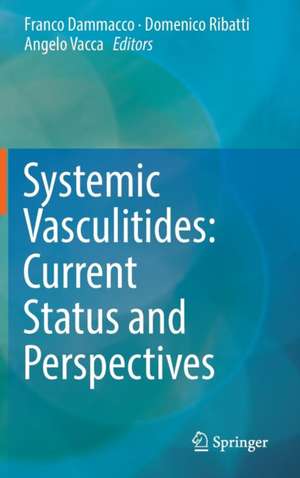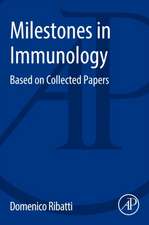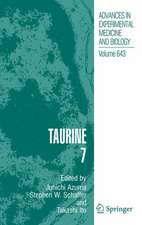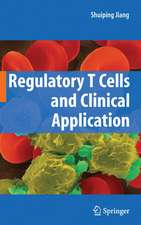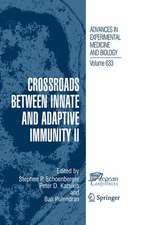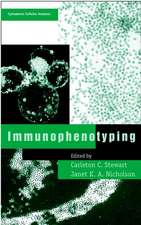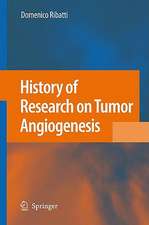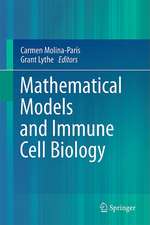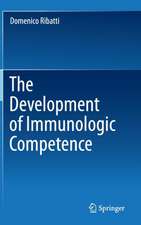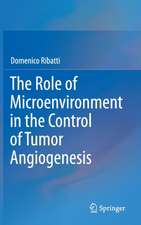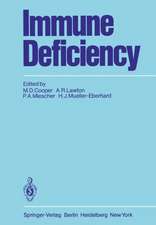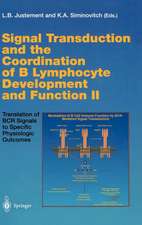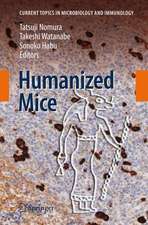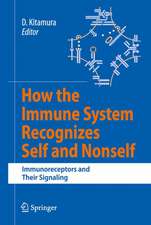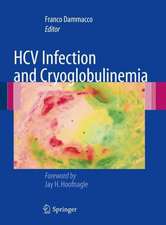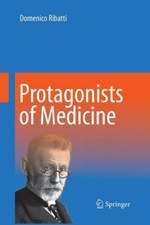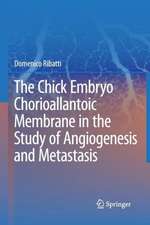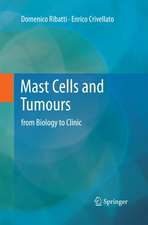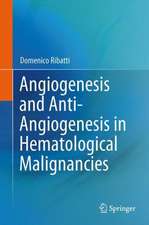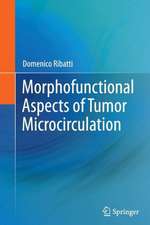Systemic Vasculitides: Current Status and Perspectives
Editat de Franco Dammacco, Domenico Ribatti, Angelo Vaccaen Limba Engleză Hardback – 24 oct 2016
This book is a collection of reviews on the major vasculitides, written by scientists and clinicians with a multi-year experience in this field. We hope it will provide the reader with a stimulating container of new advances in scientific knowledge and more rational therapeutic approaches to this fascinating chapter of pathology.
| Toate formatele și edițiile | Preț | Express |
|---|---|---|
| Paperback (1) | 787.23 lei 6-8 săpt. | |
| Springer International Publishing – 30 apr 2018 | 787.23 lei 6-8 săpt. | |
| Hardback (1) | 1109.96 lei 6-8 săpt. | |
| Springer International Publishing – 24 oct 2016 | 1109.96 lei 6-8 săpt. |
Preț: 1109.96 lei
Preț vechi: 1168.38 lei
-5% Nou
Puncte Express: 1665
Preț estimativ în valută:
212.49€ • 221.71$ • 178.12£
212.49€ • 221.71$ • 178.12£
Carte tipărită la comandă
Livrare economică 12-26 martie
Preluare comenzi: 021 569.72.76
Specificații
ISBN-13: 9783319401348
ISBN-10: 3319401343
Pagini: 375
Ilustrații: XI, 438 p. 78 illus., 55 illus. in color.
Dimensiuni: 155 x 235 x 25 mm
Greutate: 0.81 kg
Ediția:1st ed. 2016
Editura: Springer International Publishing
Colecția Springer
Locul publicării:Cham, Switzerland
ISBN-10: 3319401343
Pagini: 375
Ilustrații: XI, 438 p. 78 illus., 55 illus. in color.
Dimensiuni: 155 x 235 x 25 mm
Greutate: 0.81 kg
Ediția:1st ed. 2016
Editura: Springer International Publishing
Colecția Springer
Locul publicării:Cham, Switzerland
Cuprins
Preface.- Introductory remarks.- Giant Cell Arteritis.- Takayasu Arteritis.- Polyarteritis Nodosa.- Mechanisms of ANCA-Associated Vasculitides.- Granulomatosis with Polyangiitis (Wegener’s) and Similar “AAV with Probable Etiology”.- Eosinophilic Granulomatosis with Polyangiitis (Churg Strauss).- Anti-Glomerular Basement Membrane Disease.- IgA Vasculitis.- HCV-Related Cryoglobulinemic Vasculitis.- Vasculitis and Pulmonary Hypertension: New Therapeutic Approaches.- Vasculitis in SLE, RA and Other Connective Tissue Diseases: Diagnosis and Treatment.- Central Nervous System Vasculitis.- Uveitis.- IgG4 Syndrome.- Behçet Syndrome.- Urticarioid Vasculitis.- Guidelines for the Diagnosis and Treatment of Vasculitides.- Index.
Notă biografică
Franco Dammacco is Emeritus Professor of Internal Medicine at the University of Bari Medical School and has been President of the Italian Society of Internal Medicine. His research and clinical interests include HCV-related cryoglobulinemic vasculitis, onco-hematology, connective tissue diseases and immunodeficiency syndromes. He is author or co-author of more than 470 papers and Editor-in-Chief of the journal Clinical and Experimental Medicine.
Domenico Ribatti is full Professor of Human Anatomy at the University of Bari Medical School. His main research topics are angiogenesis and anti-angiogenesis, with special emphasis for hematological malignancies, tumor microcirculation, and immunological competence. He is author of over 650 papers and 8 monographs.
Angelo Vacca is full Professor of Internal Medicine at the University of Bari Medical School and President of the Italian Society of Immunology, Clinical Immunology and Allergology. He isactively involved in research areas such as angiogenesis and tumor progression, multiple myeloma and related malignancies, biological markers of tumor invasion and metastasis, and controlled chemotherapy studies. On these topics he has published over 300 papers.
Domenico Ribatti is full Professor of Human Anatomy at the University of Bari Medical School. His main research topics are angiogenesis and anti-angiogenesis, with special emphasis for hematological malignancies, tumor microcirculation, and immunological competence. He is author of over 650 papers and 8 monographs.
Angelo Vacca is full Professor of Internal Medicine at the University of Bari Medical School and President of the Italian Society of Immunology, Clinical Immunology and Allergology. He isactively involved in research areas such as angiogenesis and tumor progression, multiple myeloma and related malignancies, biological markers of tumor invasion and metastasis, and controlled chemotherapy studies. On these topics he has published over 300 papers.
Textul de pe ultima copertă
The systemic vasculitides,includinglarge, medium, small, and variable vessel vasculitis,have been the focus of intensive basic and clinical investigations over the last twodecades. Among theimportant advances stemming from these efforts are new definitions, classifications, and diagnostic criteria for the different classes of vasculitis; the addition of anti-neutrophil cytoplasmic autoantibodies as a new criterion for classifying vasculitis; the recognition of the viral etiology of conditions such as cryoglobulinemic vasculitis and polyarteritis nodosa; an appreciation of thebroad spectrum of clinical manifestations and potentially devastating complicationsassociated with vasculitis; the many features and remarkable clinical heterogeneity of IgG4-related, immune-mediated diseases; and the proposal of intriguing pathogenetic hypotheses for certain chronic, relapsing vasculitides.
This improved understanding of the systemic vasculitides has been accompanied by a trend away from the use of eponyms for these conditions; thus, established terms such as Wegener’s granulomatosis and Churg-Strauss syndrome have been replacedby the more descriptive definitions “granulomatosis with polyangiitis” and “eosinophilic granulomatosis with polyangiitis,” respectively.
Additional clinical laboratory tests,rapidly developing imaging techniques that can assess inflammation, especially in large-vessel vasculitis, and artificial neural network approaches will no doubt bring a wealth of informationthat ultimately leads to the identification of novel disease biomarkers. Expected applications include the identification of individuals at increased risk ofrelapsewho would benefit from patient-tailored therapy. Although the conventional combination of glucocorticoids and immunosuppressive drugs is effective in the treatment of a large proportion of vasculitic disorders, safer medications, with fewer side effects, are being developed, includingseveral biological agentsnow being closely evaluated in multi-center studies.
This volume brings togethercomprehensive and up-to-date reviews written by experiencedscientists and clinicians from many countries. Its aim is toprovide readers with state-of-the-art knowledge of the major vasculitides and cutting-edge insights into their multi-faceted features. It is our hope that this book serves as a valuable and stimulating resourcefor basic and clinical researchers, specialists in related disciplines, as well as practicing physicians and advanced medical students interested in this fascinating branch of pathology.
Franco Dammacco, Domenico Ribatti, Angelo Vacca
This improved understanding of the systemic vasculitides has been accompanied by a trend away from the use of eponyms for these conditions; thus, established terms such as Wegener’s granulomatosis and Churg-Strauss syndrome have been replacedby the more descriptive definitions “granulomatosis with polyangiitis” and “eosinophilic granulomatosis with polyangiitis,” respectively.
Additional clinical laboratory tests,rapidly developing imaging techniques that can assess inflammation, especially in large-vessel vasculitis, and artificial neural network approaches will no doubt bring a wealth of informationthat ultimately leads to the identification of novel disease biomarkers. Expected applications include the identification of individuals at increased risk ofrelapsewho would benefit from patient-tailored therapy. Although the conventional combination of glucocorticoids and immunosuppressive drugs is effective in the treatment of a large proportion of vasculitic disorders, safer medications, with fewer side effects, are being developed, includingseveral biological agentsnow being closely evaluated in multi-center studies.
This volume brings togethercomprehensive and up-to-date reviews written by experiencedscientists and clinicians from many countries. Its aim is toprovide readers with state-of-the-art knowledge of the major vasculitides and cutting-edge insights into their multi-faceted features. It is our hope that this book serves as a valuable and stimulating resourcefor basic and clinical researchers, specialists in related disciplines, as well as practicing physicians and advanced medical students interested in this fascinating branch of pathology.
Franco Dammacco, Domenico Ribatti, Angelo Vacca
Caracteristici
and only fragmentarily in specialized journals Important advancements have been recorded in the field of systemic vasculitides in the last couple of years. The large majority of these advancements cannot be retrieved in the most recently published books devoted to vasculitides, mentioned below A fully updated volume is useful not only for experienced researchers and clinicians, but especially for postgraduate students and general practitioners who usually have a limited experience with vasculitis syndromes that must be diagnosed as early as possible to prevent a rapidly progressing and often life-threatening or lethal course In addition to conventional treatments, a number of biological drugs and monoclonal antibodies have been recently administered to relapsing and refractory patients. How to choose among the different therapeutic combinations cannot be found elsewhere, whereas this crucial problem is properly addressed and critically discussed comprehensively in this book Includes supplementary material: sn.pub/extras
